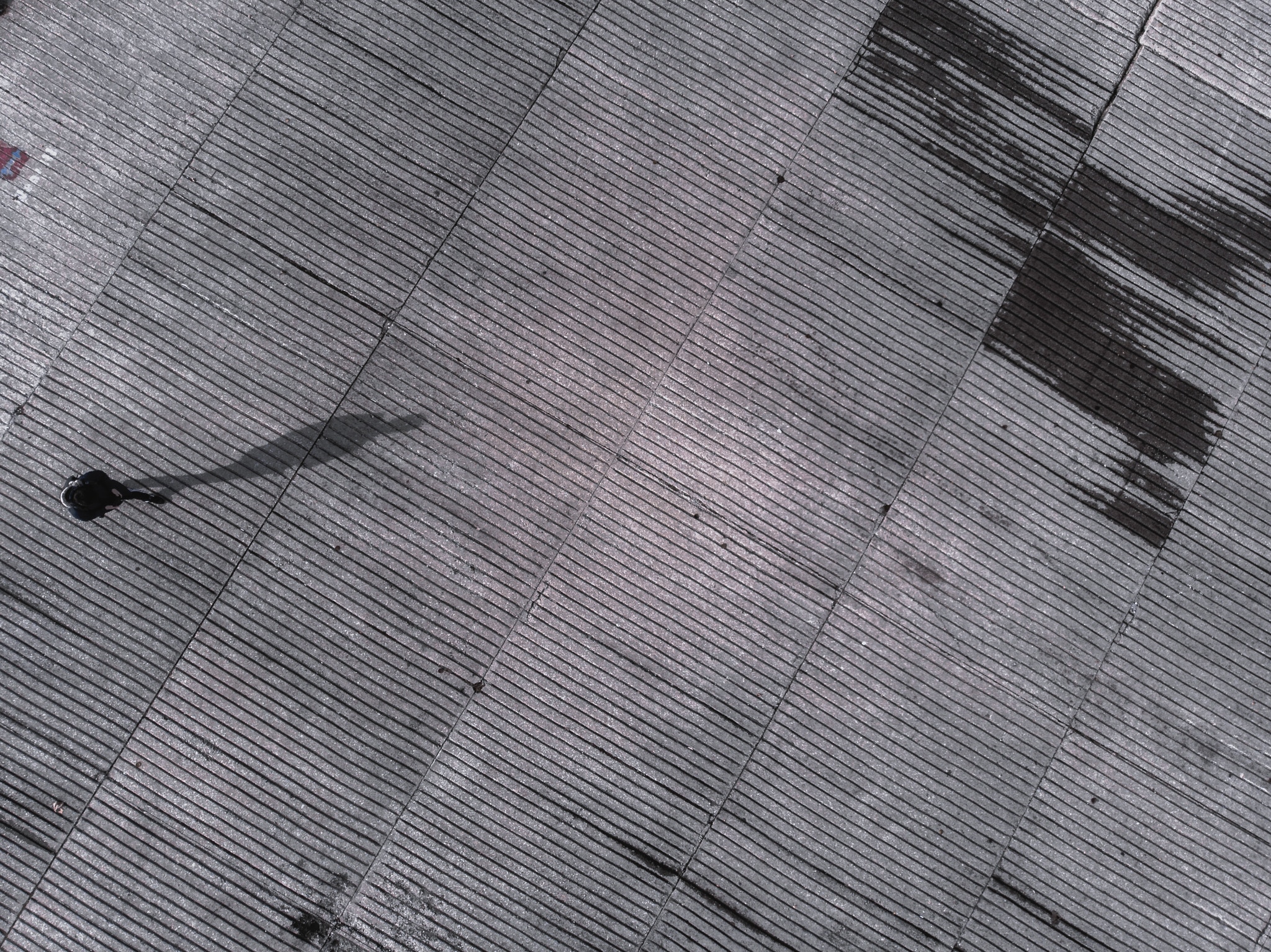Our common perception of ‘dreams’ have undergone a vast transformation in the past two hundred years. From the work of Sigmund Freud or Carl Jung, to the advancement of Behaviourism or discovery of REM / rapid eye movement sleep in the 1950s, the usefulness and even significance of dreams haven’t always been a given in society. But, whereas relatively recently a series of “thoughts, images, and sensations occurring in a person’s mind during sleep” would have been disregarded as useless brain leakage, the 21st century has seen the re-emergence of a significant interest in those infrequent “excursions into the limbo of things.”
A Dream and Philosophy Slam with Mark Vernon and Robert Rowland Smith from The School of Life was the final instalment from Eve Sleep’s Sleep Suite, a five-day spectacular celebrating sleep with a selection of talks on diet, interior design and travel.
Mark and Robert were each from The School of Life, an organisation based in London devoted to improving our emotional intelligence. How can we find work and life more fulfilling? How can we become more understanding of one’s past or personality? How can we be better at maintaining relationships? The School of Life prides itself on making us think differently about our greatest worries, and think more intelligently and openly about our central emotional concerns.
To do this, The School of Life hosts a number of events with some of the most intriguing minds in academia and culture, and A Dream and Philosophy Slam was no different. Dr. Mark Vernon for example, is an author, teacher and journalist, with a PhD in Philosophy from the University of Warwick, and degrees in Theology and Physics. Together with Robert Rowland Smith – a Prize Fellow of All Souls College, Oxford, acclaimed author and lecturer in philosophy, literature and psychoanalysis – the audience were treated to the meeting of two remarkable minds. And despite the potentiality for a convoluted, overly-scientific discussion, Mark and Robert did not disappoint, producing a ‘slam’ that was both understandable and intellectually intriguing beyond belief.
“Comedy improv, without the jokes”
I had never partaken in a philosophy slam before, especially one concerning sleep. Described by Robert Rowland Smith as “comedy improv, without the jokes”, the audience were expected to shout-out anything – yep, anything – related to their dreams, and wait for Robert and Mark to respond with a selection of impromptu ideas drawn from philosophy, literature, psychology, art or political theory. In other words, this particular event required audience participation.
Anywhere else, audience participation would presumably fill the organisers, and indeed, the audience members, with dread – especially when the topic of discussion is something as personal, as private as dreams. After all, if we were to believe the theories of Sigmund Freud, dreams represent our deepest, often darkest desires for what we wish to fulfil in our waking lives. Would anybody be willing to shout out a term related to something potentially so revealing, in a room full of strangers?
Well, those fears were misplaced. Aided by the comfortability of our surroundings in the De Montfort Suite at the Town Hall Hotel, the desire to learn more about our sleeping state was tangible, with everybody and anybody wanting to contribute to the discussion. ‘Falling’, ‘heartbreak’, ‘flying’ and even ‘orgies’, it seemed nothing was off-limits during the hour long event.
Delving into the experience of ‘violence’ in dreams for example, Mark and Robert explored everything, from the Stephen Pinker’s Better Angels of Our Nature to HBO’s Game of Thrones, detailing the extent to which much of the cultural output we may consume today, as possibly real-world incarnations of our dreams. In other words, the desire of millions all around the world to obsessively view scenes of rape, murder and graphic gore as contained in Game of Thrones, could be in reaction to a general sense of unease amongst the show’s viewers. It is thereby, almost symbolic of our own ‘fight or flight’ mechanism according to Dr. Vernon.
More Arts – Less Science
Of course, some may have been disappointed. There were few, if any references to the scientific studies recently completed or currently ongoing in regards to humanity’s experience of dreams. The “activation-synthesis hypothesis” for instance, which states that dreams are meaningless and little more than electrical brain impulses that pull sporadic thoughts from our memory, was not extensively examined.
And nor was the work of Cristina Marzano and her colleagues at the University of Rome, who only six years ago were able to explain how humans come to memorise their dreams, using a signature pattern of brain waves. In particular, “low frequency theta waves in the frontal lobes”. Instead, psychoanalysis – the work of Sigmund Freud and Carl Jung in particular – took centre-stage throughout the philosophy slam.
Perhaps several decades ago, the sincere inclusion of these figures in a discussion concerning our dreams would have been laughable, given the extent to which Freud’s work in particular, had been largely debunked by modern dream scientists.
However, as Mark and Robert clearly indicated, psychoanalysis has recently experienced a significant re-growth, offering valuable insight into the specific meaning of our dreams. Further, they were able to clearly illustrate the numerous and fundamental differences that existed between the research of Freud and Jung, rather than declaring ‘psychoanalysis’ as a catch-all term. For example, whereas Freud viewed dreams as the product of our unconscious mind, and representative of our truest and most flagrant desires, Jung – Freud’s mentee and later, professional foe – viewed dreams as the bridge between our unconscious and conscious mind. Rather than symbiotic of repressed sexual desires, dreams can provide the tools, imagery or solutions to those problems we face everyday in our conscious reality.
So, when we experience ‘chasing’ within our dream, what could it be attempting to represent? Perhaps wanting something in our conscious reality – a material possession or a high school crush? But then how could we possibly achieve that? As Smith was keen to point out, referring to a number of artistic and cultural works, often the most effective form of chasing is seduction, and luring your desire towards you. Indeed, it could be that chasing someone/thing in your dreams could be telling you not only what you desire, but the optimal methodology to attain it.
The discussion-cum-philosophy slam may not have answered the fundamental questions currently plaguing us – why precisely do dreams occur, what does each dream represent and so forth. But what it did prove in abundance is to what extent the ever-growing interest in sleep is multi-dimensional, bringing philosophers, artists, scientists and doctors together for an immense discussion like no other.
Reclaiming Our Sleep, and Our Dreams
Famed for his research on biphasic sleep patterers in pre-industrial Britain and beyond, A. Roger Ekirch wrote in 2001, how we had “los[t] touch with our dreams”, due to the cultural and technological change of the past centuries. And yet, with the average person likely to experience 150,000 to 200,000 dreams in their lifetime, and spend as much as 10% of their lives dreaming, dreaming’s significance beyond the world of sleep cannot afford to be underestimated, however difficult it is to explore the mysterious phenomenon.
As soon became apparent last Friday night however, once our dreams are explored in an open manner, using familiar terminology, popular culture and philosophy, it’s impossible not to want to learn more about our near-nightly, sleepy excursions into strange and wondrous worlds.
Perhaps we have been “disanulled of our first sleep, and cheated of our dreams and fantasies,” by technological advances and the capitalist age. But, as The Sleep Suite series by Eve Sleep exemplified, attempts to reclaim a peaceful, high-quality and interesting night’s sleep are currently underway, and consequently, encouraging more open, more informed discussions in regards to all things sleep – whether about food or travel, the metaphysical or the practical.







